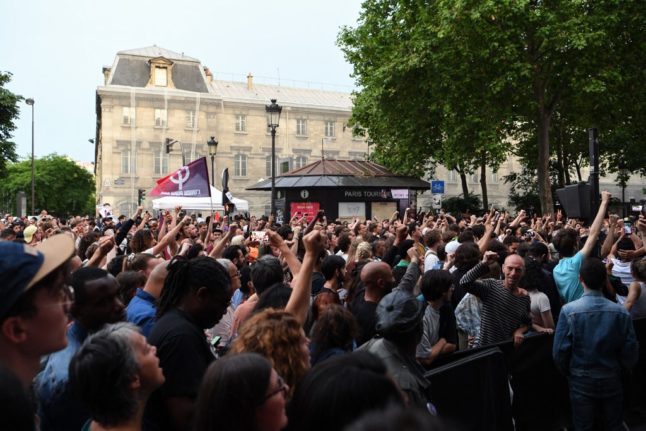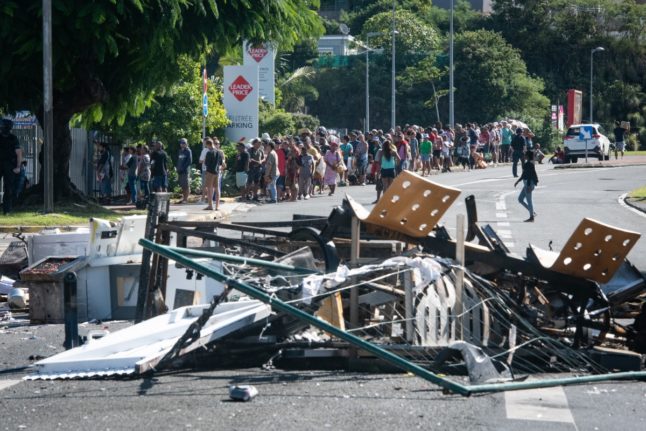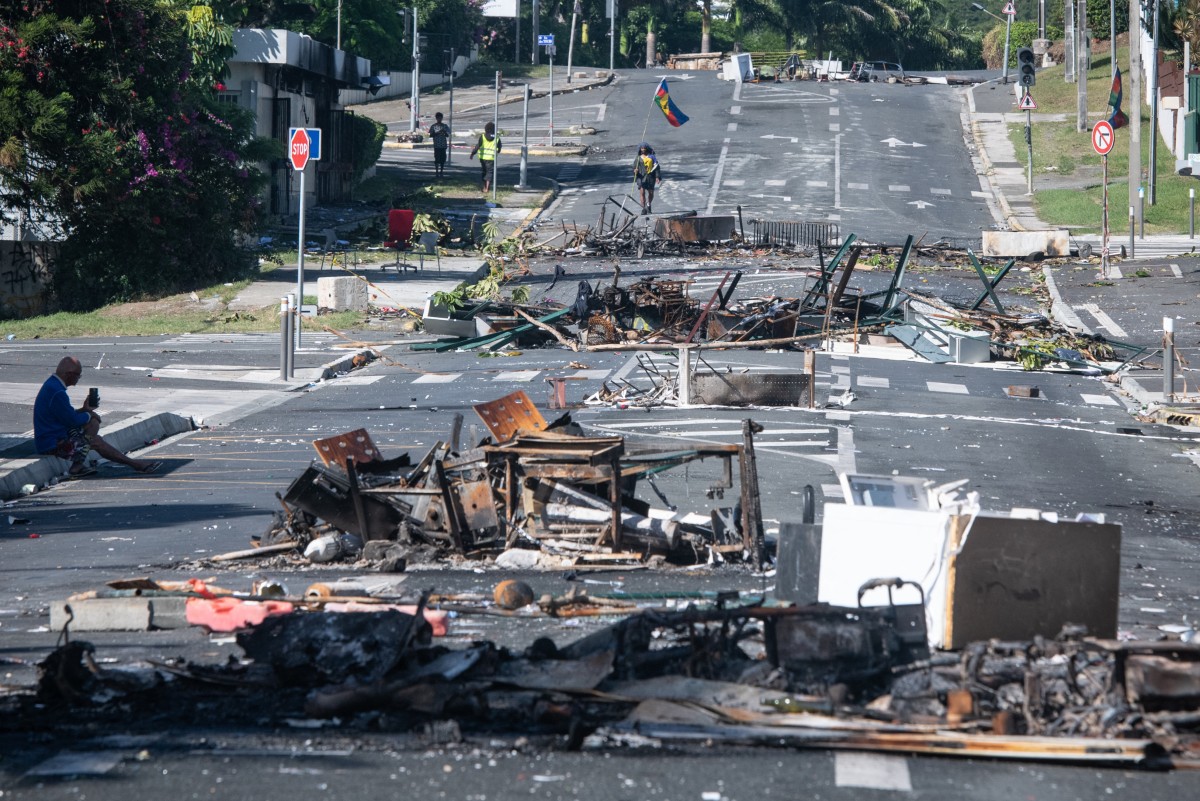The results are in from Sunday’s parliamentary elections, with president Emmanuel Macron losing his parliamentary majority. The final results showed 245 seats for Macron’s Ensemble coalition (44 seats short of an absolute majority), 131 for the leftist alliance Nupes and 89 for the far-right Rassemblement National.
Here are 5 of the biggest takeaways from the historic result:
Far-right surge – the big surprise of the elections was the huge gains made by Marine Le Pen’s far-right Rassemblement National party, something that had not been predicted by pollsters.
Although Le Pen came second in the 2017 presidential elections (and again came second in the April 2022 election) her party had previously performed poorly in parliamentary elections, winning just eight seats.
That all changed on Sunday, as RN surged to a massive 89 seats, making them the third biggest block in the parliament and the largest single party (since Ensemble and Nupes are both alliances of multiple parties).
🔴 245 sièges pour Ensemble, 131 pour la Nupes, 89 pour le RN… Découvrez les résultats définitifs des #legislatives2022
➡️ https://t.co/nTLIPydU4E pic.twitter.com/2L0UU1V9bE— Le Parisien (@le_Parisien) June 20, 2022
This is the best ever result for Le Pen’s party, and it also means the financially-troubled party will be eligible for more funding from the State, which is allocated on the basis of parliamentary representation.
A confident Le Pen said her party would demand the chair of the powerful finance commission, as is tradition for the biggest single-party opposition.
“The country is not ungovernable, but it’s not going to be governed the way Emmanuel Macron wanted,” Le Pen told reporters on Monday.
Minority government – Macron now faces governing in a minority, after his Ensemble coalition won the largest number of seats, but not enough to form an overall majority.
His position is not as bad as his predecessors Jacques Chirac and François Mitterand, both of whom were forced to govern in ‘cohabitation‘ after their parties lost the parliamentary majority. Cohabitation occurs when the president’s party is not the largest party in parliament, and the president is then forced to appoint as prime minister the leader of the party with the parliamentary majority.
Macron’s loss of an absolute majority, however, means he faces five years of shaky alliances and deal-making with opposition MPs in order to get any legislation passed. Previous presidents have spent part of their term with a small minority but to begin a five-year term with such a large minority – 44 seats short – is unprecedented in the Fifth Republic.
READ ALSO What next for France after Macron loses majority?
France divided – the most striking thing about the new electoral map is how fragmented it is – no party or group dominates overall and there are few ‘local strongholds’ for any party.
#legislatives2022 La majorité résiste en Bretagne, forte poussée du RN en Occitanie, l’Ile-de-France coupée en deux…
La carte d’une France sens dessus dessous, circonscription par circonscription ➡️ https://t.co/f00345IJRw pic.twitter.com/MwxuodSQgh
— Le Parisien (@le_Parisien) June 20, 2022
This is reflected in the overall results for the parliament, in which Macron’s party has the largest number of seats but no majority and no other party has a clear mandate to dominate parliament.
The leftist Nupes alliance failed in its ambition to become the single largest group in parliament and force Macron to appoint the far-left veteran politician Jean-Luc Mélelchon as prime minister.
After decades of domination by the two big parties of the centre-left and centre-right these elections confirm the trend seen in the presidential elections in April – that French votes are bow divided into three roughly equal blocks; the far left, far right and centre.
The increasing acrimony between the groups also lead to the collapse of the Front républicain – the traditional pact where voters from across the political spectrum band together to vote against any far-right candidate who makes it through to the second round of voting.
The failure of candidates of both Macron’s centrist group and Mélenchon’s leftist group to call for a strong Front républicain contributed to the unexpected success of Le Pen candidates.
OPINION France has voted itself into a prolonged and painful crisis
New faces – The Macron government lost three ministers – health minister Brigitte Bourguignon, environment minister Amélie de Montchalin and maritime minister Justine Benin – who all failed to be elected. They don’t technically have to quit their ministerial roles, but Macron said before the election that he expected ministers who lost elections to step down.
The other 12 ministers who were standing for election won their seats – in the case of Europe minister Clément Beaune by just 658 votes – but a government reshuffle is now on the cards.
One of the most high-profile of the newly-elected candidates is Rachel Kéké, a former hotel maid who came to prominence leading a campaign for better working conditions at her hotel in the Paris suburbs. She was elected as the Nupes candidate, defeating Macron’s former sports minister Roxana Maracineanu.
The north-east suburbs of Paris now has a husband-and-wife MP combination, as Alexis Corbières was re-elected in Bagnolet while his wife Raquel Garrido won her first term in neighbouring Bobigny. They both represent the hard-left La France Insoumise and Garrido is originally Chilean, moving to France as a child after her parents fled the coup in 1973.
The new parliament is slightly less gender-balanced than previously, with 215 female MPs out of a total of 557. The 2017 parliament counted 224.
Turnout – the elections saw a record low turnout, with just 46 percent of registered voters casting their ballot papers. This marked the lowest turnout rate for parliamentary elections since the beginning of the Fifth Republic in 1958, a three-point fall on 2017 which previously held the record.
The second round of voting also saw a fall in turnout from round one the previous week, when 48 percent of voters turned out.
The abstention rate follows the trend of the presidential elections in April, which also saw a record low turnout for a presidential election.




 Please whitelist us to continue reading.
Please whitelist us to continue reading.
IMHO, there is an urgent matter of stop calling le pen the far right, because they are national socialists. they have no “right” program as a less state-controlled economy, rather otherwise (a lot of subsidies)